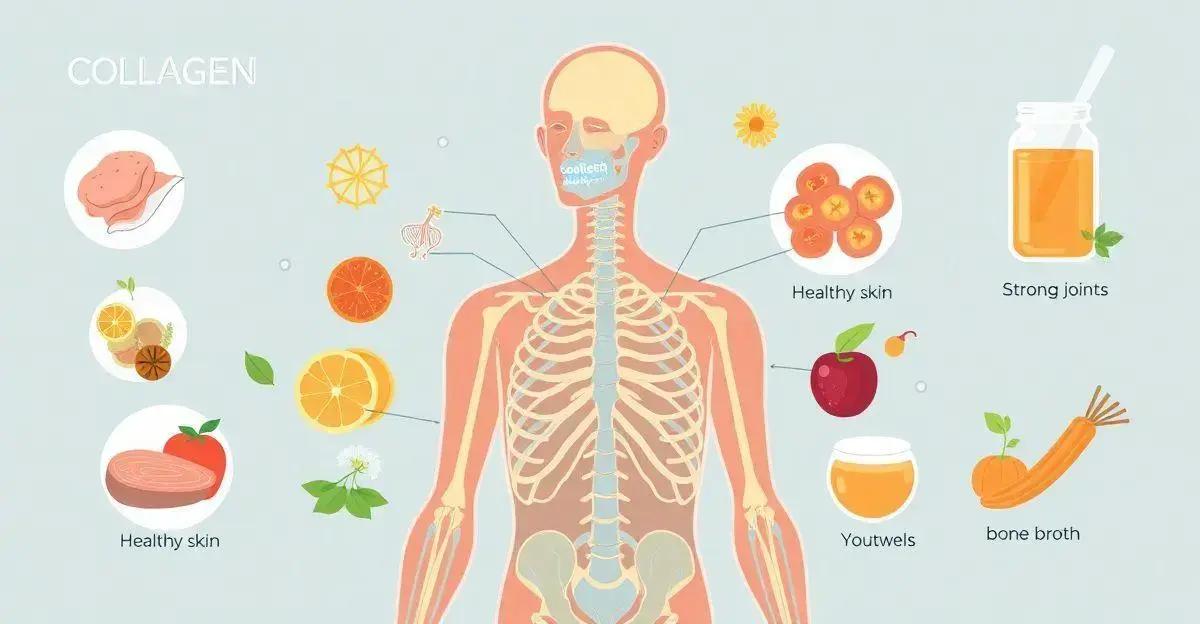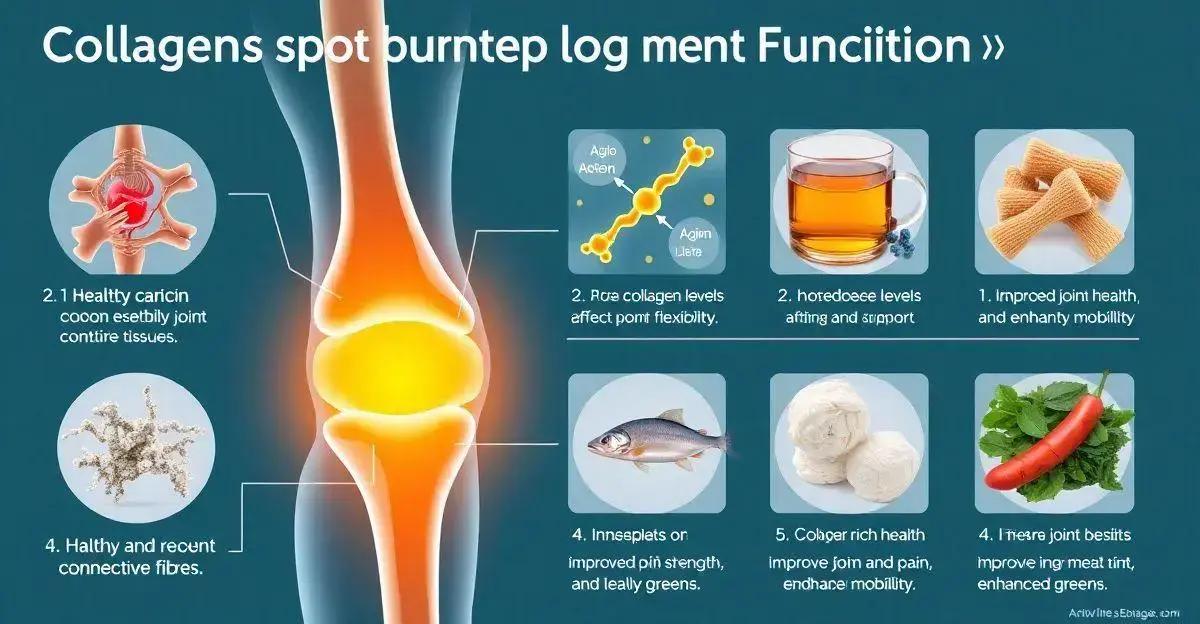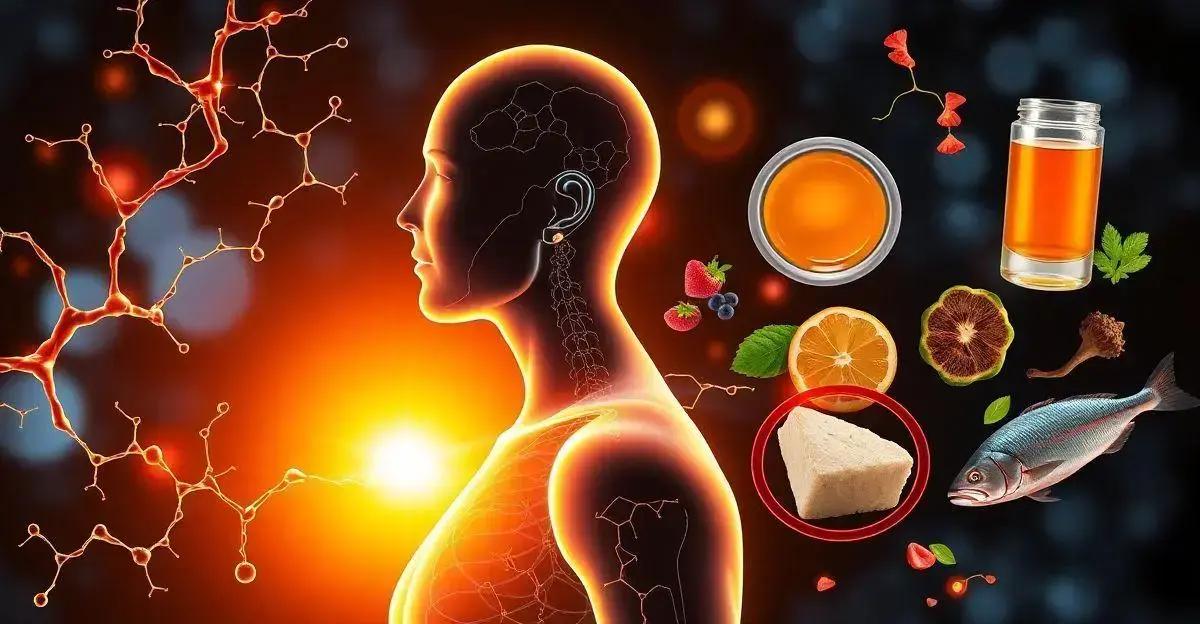Collagen is an essential protein that supports skin health, joint function, and overall wellness. As we age, our body’s collagen production decreases, leading to wrinkles and joint pain. To counteract these effects, incorporating collagen through dietary sources, supplements, or collagen-rich foods can be beneficial. Various forms of collagen supplements are available, making it easy to find one that fits your lifestyle. Many users report improvements in skin elasticity and joint health with consistent collagen supplementation, promoting a healthier and more vibrant life as they age.
Collagen is a vital protein that plays a crucial role in maintaining the structure and function of our skin, joints, and connective tissues. As we age, our natural collagen production decreases, leading to various signs of aging and discomfort. Understanding what collagen does for you can help you appreciate its importance and consider how to support its levels in your body. In this article, we will explore the benefits of collagen and its impact on your health and well-being.
What is Collagen?
Collagen is the most abundant protein in the human body, making up approximately 30% of the total protein content. It is a key structural component that provides strength, support, and elasticity to various tissues, including skin, bones, muscles, tendons, and ligaments. Collagen is often referred to as the body’s “glue” because it helps maintain the integrity and structure of these tissues.
There are at least 16 different types of collagen, but the most common types include:
- Type I: This type is found primarily in skin, tendons, and bones, and is known for its tensile strength. It plays a significant role in maintaining skin firmness and reducing the appearance of wrinkles.
- Type II: Predominantly found in cartilage, type II collagen is vital for joint health, providing cushioning and support to joints during movement.
- Type III: Often found alongside type I, type III collagen is important for the structure of skin, blood vessels, and internal organs. It contributes to the elasticity and firmness of tissues.
As we age, collagen production naturally declines, leading to various signs of aging, such as wrinkles, sagging skin, and joint discomfort.
Understanding what collagen is and its essential functions in the body highlights the importance of maintaining healthy collagen levels throughout life.

The Role of Collagen in the Body
Collagen plays a vital role in maintaining the structure and function of various tissues in the body. As the most abundant protein, it serves multiple essential functions, including:
The Role of Collagen in the Body
- Structural Support: Collagen provides strength and support to connective tissues, including skin, bones, cartilage, and tendons. It helps maintain the integrity and shape of these structures, ensuring they function properly.
- Skin Elasticity: Collagen is a key component of the skin’s structure, contributing to its elasticity and firmness. It helps prevent sagging and the formation of wrinkles, playing a crucial role in maintaining a youthful appearance.
- Joint Health: In joints, collagen is found in cartilage, where it provides cushioning and support. It helps reduce friction between bones, allowing for smooth movements and less discomfort during physical activity.
- Bone Strength: Collagen contributes to bone density and strength. It forms a scaffold for minerals, such as calcium and phosphorus, enhancing bone structure and reducing the risk of fractures.
- Wound Healing: Collagen plays a critical role in the healing process. It helps form new tissue at injury sites and supports the regeneration of skin, ensuring a faster recovery from wounds.
- Blood Vessel Integrity: Collagen is essential for maintaining the structure of blood vessels. It provides stability and strength to arterial walls, promoting cardiovascular health and proper circulation.
Understanding the crucial roles that collagen plays in the body underscores its importance for overall health. As collagen levels decline with age, it becomes increasingly important to consider ways to support and maintain healthy collagen production through diet, supplementation, and lifestyle choices.
Benefits of Collagen for Skin Health
Collagen is a fundamental protein that significantly contributes to skin health and appearance. Here are some of the key benefits of collagen for skin health:
Benefits of Collagen for Skin Health
- Improved Elasticity: As we age, collagen production declines, leading to reduced skin elasticity. Supplementing with collagen can help restore skin elasticity, making it firmer and more resilient.
- Reduction of Wrinkles: Collagen helps minimize the appearance of fine lines and wrinkles. Regular collagen intake can improve skin hydration and plumpness, leading to a smoother complexion.
- Enhanced Hydration: Collagen has been shown to improve skin moisture levels. Well-hydrated skin appears healthier and more vibrant, reducing the chances of dryness and dullness.
- Support for Skin Repair: Collagen plays a crucial role in the skin’s healing process. It aids in the regeneration of skin cells, helping to repair damage from wounds, acne, or other injuries.
- Better Skin Texture: By promoting cell turnover and increasing moisture retention, collagen can improve overall skin texture, making it softer and more supple.
- Protection Against Environmental Damage: Collagen provides structural support that can help the skin withstand environmental stressors, such as UV rays and pollution, which can lead to premature aging.
Incorporating collagen into your diet or skincare routine can provide these benefits, helping you maintain youthful, healthy skin as you age. Whether through supplements, collagen-rich foods, or topical applications, ensuring adequate collagen levels is essential for optimal skin health.

How Collagen Supports Joint Function
Collagen plays a critical role in maintaining joint health and function. As a primary component of cartilage, tendons, and ligaments, collagen provides essential support to our joints. Here are some key ways in which collagen supports joint function:
How Collagen Supports Joint Function
- Cushioning and Shock Absorption: Collagen helps to maintain the integrity of cartilage, which acts as a cushion between bones in joints. This cushioning effect reduces friction during movement and absorbs shock, preventing wear and tear on the joint surfaces.
- Maintaining Cartilage Integrity: Collagen provides structure and strength to cartilage, ensuring it remains resilient and functional. Healthy cartilage is crucial for smooth joint movement and flexibility.
- Reducing Joint Pain: Studies have shown that collagen supplementation can help reduce joint pain, particularly in individuals with osteoarthritis or those engaged in high-impact activities. By supporting cartilage health, collagen can alleviate discomfort during movement.
- Enhancing Mobility: By promoting the health of tendons and ligaments, collagen contributes to overall joint stability and mobility. Improved joint function allows individuals to move more freely and with less discomfort.
- Supporting Recovery: Collagen aids in the repair and regeneration of joint tissues after injury or strenuous activity. This support can help accelerate recovery times and improve overall joint health.
Understanding how collagen supports joint function underscores its importance in maintaining mobility and quality of life, especially as we age or engage in physically demanding activities. Including collagen in your diet or through supplementation can be beneficial for promoting joint health and reducing discomfort.
Collagen and Hair/Nail Strength
Collagen is not only crucial for skin and joint health, but it also plays an essential role in promoting strong, healthy hair and nails. Here are some of the key ways in which collagen supports hair and nail strength:
Collagen and Hair/Nail Strength
- Building Blocks of Hair: Collagen contains amino acids, particularly proline and glycine, which are vital for the production of keratin, the primary protein found in hair. By supporting keratin production, collagen helps maintain hair structure and strength.
- Improved Hair Thickness: Studies suggest that collagen supplementation may help improve hair thickness and density, reducing the appearance of thinning hair. This effect is particularly beneficial for individuals experiencing hair loss or weakened hair due to age or other factors.
- Enhancing Nail Health: Collagen contributes to nail strength, helping to prevent brittleness and breakage. Regular collagen intake may lead to healthier, stronger nails that are less prone to chipping.
- Promoting Scalp Health: Collagen supports the health of the scalp by improving blood circulation and providing essential nutrients to hair follicles. A healthy scalp environment is crucial for optimal hair growth and overall hair health.
- Preventing Damage: By maintaining the structural integrity of hair and nails, collagen helps protect them from environmental damage, including UV exposure and pollution, which can weaken and damage hair and nails over time.
Incorporating collagen into your diet or using collagen-based supplements can significantly benefit your hair and nails, contributing to their strength and vitality. Whether through food sources or supplements, ensuring adequate collagen levels is essential for promoting healthy hair and nails as part of your overall wellness routine.

Sources of Collagen: Foods and Supplements
To maintain healthy collagen levels in the body, it’s essential to include both dietary sources and supplements in your routine. Here’s a breakdown of the various sources of collagen:
Sources of Collagen: Foods and Supplements
- Collagen-Rich Foods: Incorporating foods that naturally contain collagen can help boost your intake. Some of the best sources include:
- Bone Broth: Made by simmering animal bones and connective tissues, bone broth is one of the richest natural sources of collagen.
- Chicken: Chicken skin and cartilage are high in collagen, making chicken a great addition to your diet.
- Fish and Shellfish: Fish, especially those with skin, and shellfish provide collagen and are often more easily absorbed by the body.
- Eggs: Egg whites are a good source of proline, an amino acid that is important for collagen production.
- Leafy Greens: Vegetables like spinach and kale contain chlorophyll, which may help increase collagen levels in the skin.
- Nuts and Seeds: Nuts and seeds, particularly almonds and chia seeds, offer nutrients important for collagen synthesis, such as vitamin E and zinc.
- Collagen Supplements: For those looking to boost their collagen intake more directly, supplements are an effective option. Common forms include:
- Collagen Powders: Hydrolyzed collagen powders can be easily mixed into beverages or foods for convenient consumption.
- Collagen Capsules: These provide a pre-measured dose and are easy to take on the go.
- Liquid Collagen: Available in ready-to-drink forms or concentrates, liquid collagen is quickly absorbed by the body.
- Collagen Gummies: A tasty option for those who prefer a more enjoyable way to take their supplements, though it’s important to check for added sugars.
By incorporating both collagen-rich foods and supplements into your diet, you can effectively support collagen production and maintain optimal health for your skin, joints, and overall well-being. A balanced approach ensures you receive the benefits of collagen while enjoying a varied and nutritious diet.
How to Incorporate Collagen into Your Routine
Integrating collagen into your daily routine can be simple and effective. Here are some practical tips on how to incorporate collagen to maximize its benefits for your health:
How to Incorporate Collagen into Your Routine
- Start with Collagen Supplements: Choose a form of collagen supplement that suits your lifestyle, whether it’s powder, capsules, or liquid. Take it consistently at the same time each day to establish a habit.
- Mix Collagen Powder into Beverages: Collagen powder is versatile and can easily be mixed into your morning coffee, smoothies, or protein shakes. This not only makes it more enjoyable to consume but also enhances the nutritional value of your drinks.
- Add to Meals: Incorporate collagen powder into foods such as oatmeal, yogurt, or soups. This is a great way to boost your collagen intake without altering the taste of your meals significantly.
- Use Bone Broth in Cooking: Incorporate bone broth into your recipes. Use it as a base for soups, stews, or sauces to benefit from its natural collagen content while enjoying your favorite dishes.
- Explore Collagen-Infused Products: Look for food products that contain added collagen, such as protein bars or snacks. These can provide convenient options for boosting your intake while on the go.
- Be Consistent: Consistency is key for seeing results. Make it a part of your daily wellness routine, and be patient, as the benefits of collagen may take time to manifest.
- Stay Hydrated: Drink plenty of water throughout the day to support overall health and enhance the effectiveness of collagen in your body. Proper hydration aids in skin elasticity and overall vitality.
By thoughtfully incorporating collagen into your routine, you can enjoy its numerous benefits for skin, joint, and overall health. Easy adjustments to your daily diet and lifestyle can lead to significant improvements in your well-being.

Conclusion
Conclusion
In conclusion, collagen is an essential protein that plays a vital role in maintaining the health and integrity of our skin, joints, and connective tissues. As we age, the natural decline in collagen production can lead to various signs of aging and discomfort.
Understanding the importance of collagen and how to effectively incorporate it into your daily routine can make a significant difference in your overall health and well-being.
By exploring different sources of collagen, including dietary options and supplements, individuals can support their collagen levels and experience numerous benefits, such as improved skin elasticity, stronger joints, and healthier hair and nails.
Incorporating collagen can be simple and enjoyable, whether through powders, capsules, or collagen-rich foods.
As with any health regimen, consistency is key. Make collagen a part of your daily routine, and consult with healthcare professionals to tailor your approach to your specific health needs.
With the right strategies in place, you can enjoy the transformative benefits of collagen and promote a healthier, more vibrant life as you age.
Conclusion
In conclusion, collagen is a critical protein that significantly contributes to our skin, joint, and overall health.
As we age, our body’s natural collagen production decreases, leading to visible signs of aging and discomfort. By understanding the role of collagen and actively incorporating it into our daily routines, we can mitigate these effects and promote better health.
Whether through dietary sources, supplements, or collagen-rich foods, there are numerous ways to support collagen levels. Consistency in supplementation and mindful incorporation into meals can maximize the benefits of collagen, enhancing skin elasticity, reducing joint pain, and improving overall well-being.
As you explore the various forms of collagen available and integrate them into your lifestyle, remember that patience and commitment are key. With informed choices and a proactive approach, you can harness the power of collagen to support your health and vitality as you age gracefully.
FAQ – Frequently Asked Questions about Collagen
What is collagen and why is it important?
Collagen is the most abundant protein in the body, providing structure and support to skin, bones, muscles, tendons, and ligaments. It is crucial for maintaining skin elasticity, joint health, and overall vitality.
How does collagen production change with age?
Collagen production naturally declines starting in our late 20s, with a loss of about 1% per year. This decline can lead to signs of aging, such as wrinkles and joint discomfort.
What are the benefits of taking collagen?
Taking collagen can improve skin elasticity, reduce joint pain, strengthen hair and nails, enhance muscle mass, support bone health, and promote gut health.
What are the different forms of collagen supplements?
Collagen supplements are available in various forms, including powders, capsules, liquid extracts, gummies, and collagen-infused foods.
How can I incorporate collagen into my diet?
You can incorporate collagen by adding collagen powder to beverages, using bone broth in cooking, taking capsules, or enjoying collagen-rich foods.
Are there any side effects associated with collagen supplements?
Collagen supplements are generally safe, but some individuals may experience digestive issues, allergic reactions, or an unpleasant aftertaste. It’s important to consult a healthcare provider if you have concerns.
How long does it take to see results from collagen supplementation?
Results can vary, but many users report noticeable improvements in skin and joint health within 4 to 12 weeks of consistent collagen supplementation.
Can I take collagen if I have dietary restrictions?
There are collagen supplements made from various sources, including marine and bovine collagen, as well as vegan options that contain ingredients to support collagen production. Always check the source to ensure it aligns with your dietary preferences.


